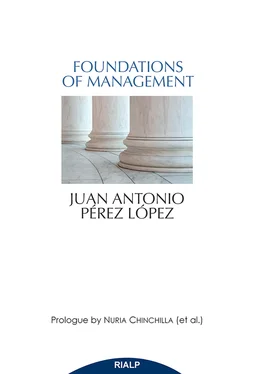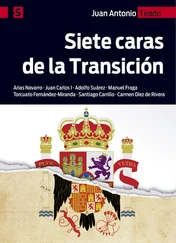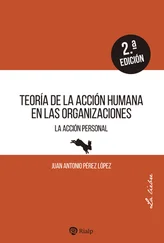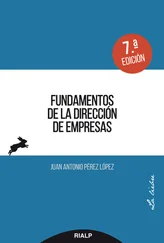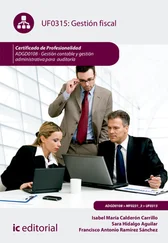Alongside the comprehensive rationality of Pérez López’s model, the use of rationality in other theories is instrumental: rationalism ignores affective human realities; voluntarism disregards or impedes the unity of the person, conceiving freedom as independence incapable of commitment; and sentimentalism replaces value with sentiment or affective response, viewing human action as a simple product of sentimental impulses. 6Pérez López insisted that the worst that can happen to a person is to go on a path of experience that produces satisfactions—addictions—that damage and isolate that person. The one who seeks opportunistic effectiveness, or efficiency without consistency, sets out on a course of negative evaluative learning—the result of spontaneous motivation—due to extrinsic or intrinsic motives.
In contrast, positive evaluative learning arises to the degree that we are able to know the needs of others and bear them in mind in our decision-making. This is why Pérez López constantly speaks of the importance of how we make decisions, not only the results obtained, since motivational or evaluative lessons continue to be learned throughout a person’s life.
Nothing is so eloquent as when the truth appears in someone who personifies it. We talk colloquially about people being good if they are concerned about others and being selfish if they act only in their own interests. As we saw at the beginning, egotism is corrosive for life as a society: such as the businessman who only chases profits, the politician who only pursues power, the scientist who only seeks to overcome a challenge or build his or her own reputation, etc.
Pérez López highlights the difference between motives (ends, values, goods) and motivations (evaluations). And we can appreciate why he insists on this distinction: values exist in reality, which is valuable: to the extent that I possess it, I enjoy the corresponding satisfaction. Evaluations, on the other hand, exist within each subject: they vary according to the lessons learned. A failure to develop evaluative knowledge amounts, in practice, to growing incapable of seeing the damage we are causing ourselves and others with our way of acting, as well as to thwarting our own future ability to maintain quality relationships.
The unified treatment of decision-making opens up an approach to conducting science in a way that integrates criteria of ethical rationality, psychosociological rationality, and economic rationality—since human beings do not perform one action to become good, another to develop their cognitive and operational capacities, and yet another to increase profits. Pérez López integrates anthropology into decision-making and demonstrates that this is the route to achieving technical, scientific, or economic results.
The purpose of this e book edition is to open up new avenues for research and the resolution of problems—especially in business organizations, institutions with the greatest impact on people’s everyday lives and where it is easiest to observe the relations among effectiveness, efficiency, and consistency. For many years, both this book and Pérez López’s theories themselves have been a font of inspiration and a stimulus for many. To mention only IESE Business School, we have seen prolific research based on his theories from Antonio Argandoña, Josep Rosanas, and Miguel Ángel Ariño, among others, not to mention the countless alumni who have enriched their managerial work through their acquaintance with his theories in this book, his technical notes, and their application in the discussion of countless cases. Now it is the reader’s turn to immerse yourself in this book and make the most of the treasure that Pérez López has placed in your hands.
1Prologue to the e book version of Juan Antonio Pérez López (2014), Foundations of Management, Rialp, Madrid.
2See the posthumously published book Pérez López (1998), Liderazgo y ética en la dirección de empresas. La nueva empresa del siglo XXI [Leadership and Ethics in Business Management: The New Company of the 21st Century, Deusto, Bilbao.
3As distinct from other ways of influencing others: coercion and manipulation.
4The error of deriving moral relativism from sociological relativism, or of deducing what is good and evil from the most widely accepted customs or ways of life of a certain people or epoch, is to believe that if P is a sufficient condition of Q, it is also a necessary condition. For instance, “It’s raining: the ground is wet” (it cannot be inferred that the ground is wet because it is raining); “The car has no gasoline: it’s not running” (it cannot be inferred that the car is not running because it has no gasoline). This is where the psychosociological paradigm breaks down.
5Our freedom is not independent: it can select the beginning of a path but not its consequences. If I choose an aim, I am bound to follow the path that leads me to it. We are conditioned by our own nature and by the lessons that we are continually learning, both positive and negative.
6For further development of this subject, see: Marta López-Jurado (2010), La decision correcta [The Correct Decision], Desclée De Brouwer, Bilbao.
FIRST PART
THE COMPANY:
A HUMAN ORGANIZATION
CHAPTER 1
BUSINESS ORGANIZATIONS AS HUMAN REALITIES
Introduction
A business firm is a human organization, composed of persons who work with some kind of coordination to achieve certain goals or results. In fact, all human organizations are no more than this: groups of people who coordinate their actions to achieve goals that everyone has an interest in achieving, although this interest may be due to very different motives.
Business organizations thus resemble families, sports clubs, city councils, the army and many other organizations precisely in the fact that they are all human organizations. Of course, all these organizations, and others that we might have mentioned, also include many aspects that distinguish them from each other.
Perhaps the most obvious way to define what distinguishes them is to look at what it is that each of them normally does. Thus, it would be reasonable to say: “I acknowledge that a business is just as much a human organization as a club where a few friends meet to play chess, but it doesn't seem to me that what they have in common-being human organizations— is more important than what makes them different—manufacturing, buying and selling something on the one hand, playing chess on the other”.
No doubt someone could point out that what is important is not this difference in what they do. after all, a business could be created whose aim was to operate a social club where people could go to play chess. The important thing is that in a business all these things— manufacturing and selling cars, or running a club for chess players—are done for a different reason than the club run by a group of friends: a business seeks to earn money; friends only seek to have fun.
Viewed from this perspective, an organization composed of a group of friends who want to have fun building cars will more closely resemble the organization formed by another group of friends to play chess than the latter would resemble a chess club run as a business, or the former a car manufacturer.
In fact, we could go on multiplying perspectives in order to define differences between various types of human organizations. No doubt, for a particular case, we would find that a particular perspective provides useful insights to account for differences which, in that particular case, are very important; but that same perspective might have little bearing on many other cases.
The aim of scientific analysis is to explain in an orderly manner the various aspects which determine whether something is or is not a particular kind of thing. Therefore, one begins by studying very general aspects or properties and then goes on to consider others which define more particular cases.
Читать дальше
